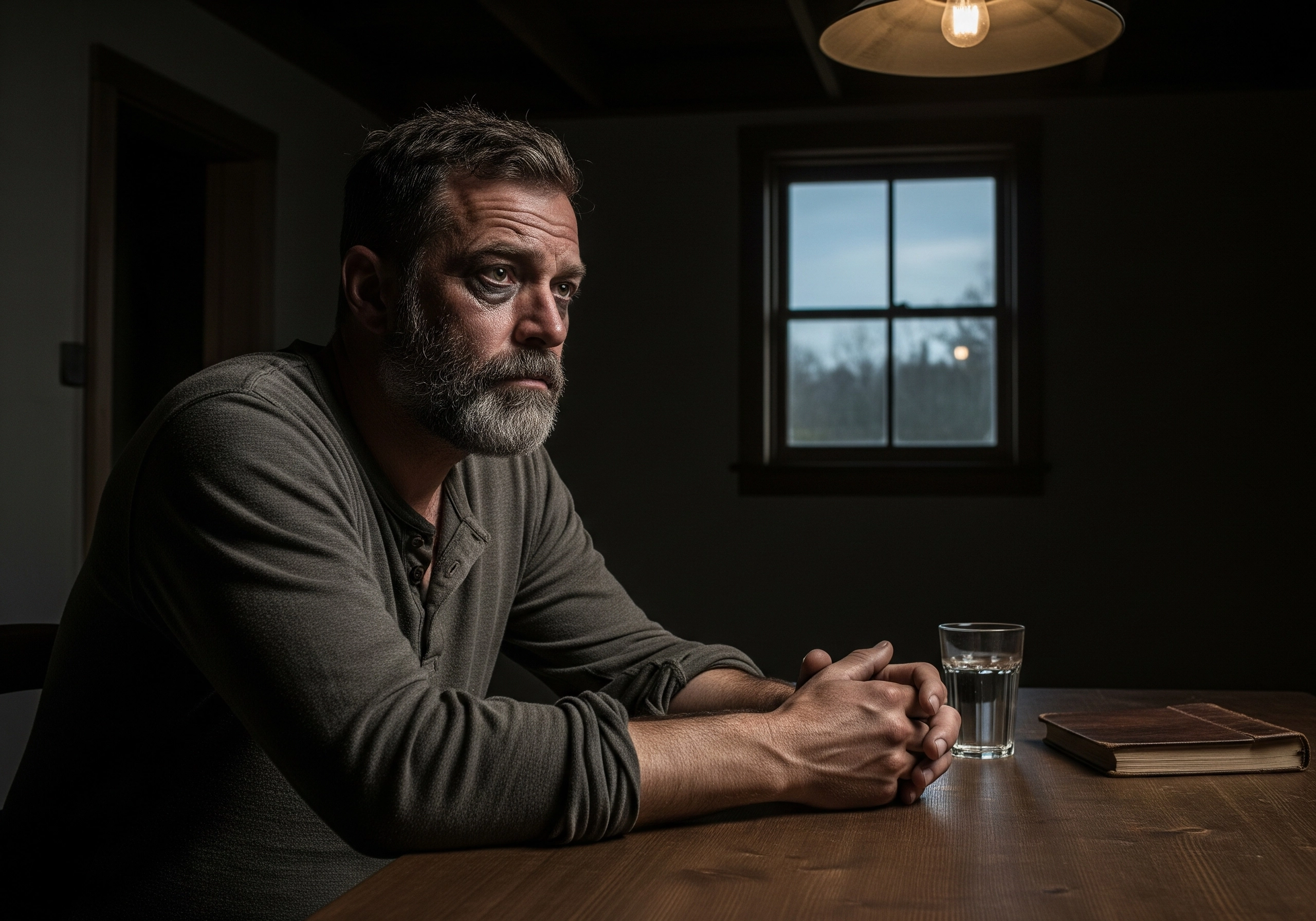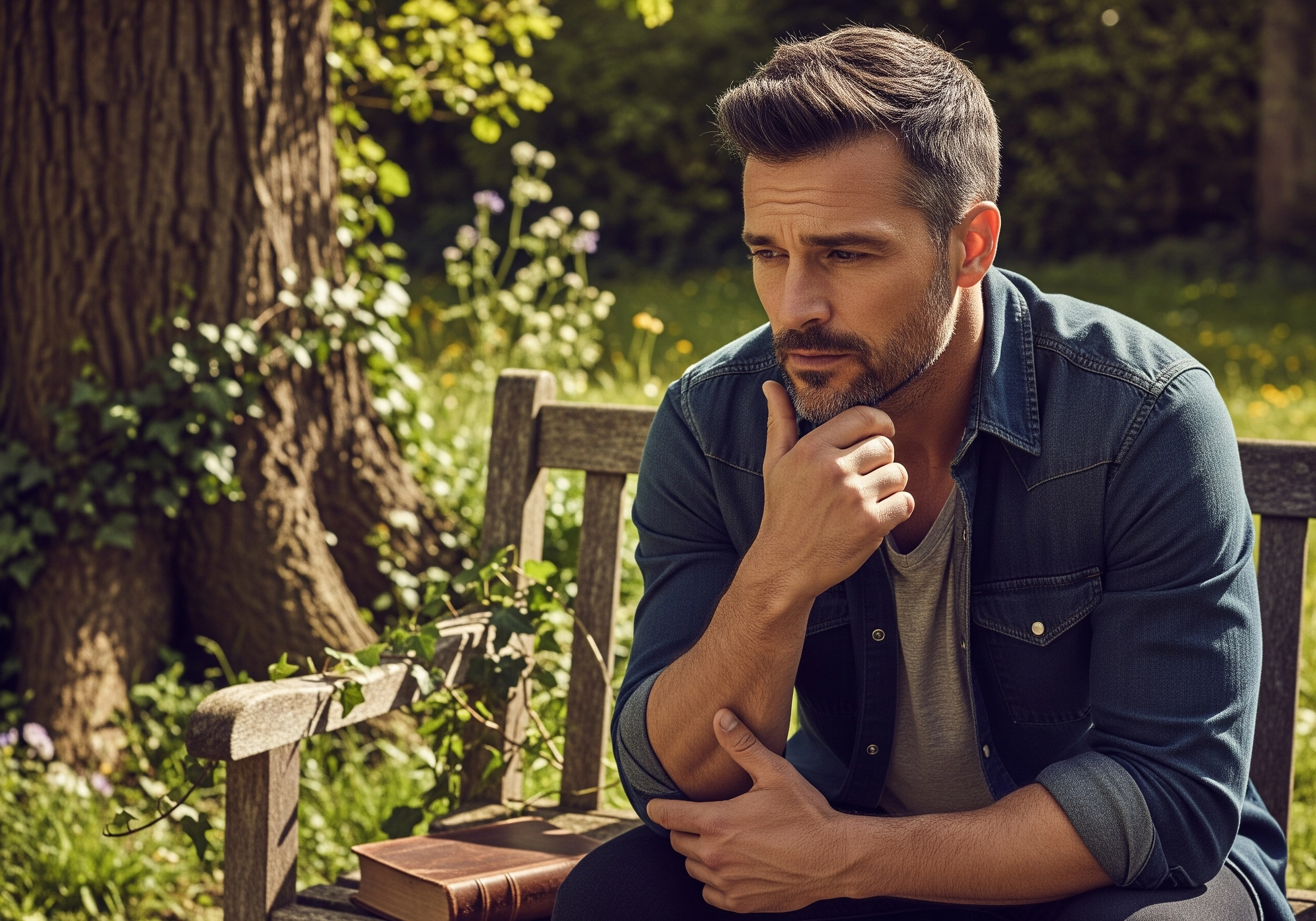The Weight of Silence
For generations, men have been taught to be stoic — to hold it in, push through, and never show weakness. This cultural ideal, often referred to as the “strong silent type,” has long been portrayed as noble and masculine. But behind this silence, many men carry an invisible burden: emotional isolation, chronic stress, and unspoken pain. What may seem like strength on the surface is often a mask hiding exhaustion and vulnerability underneath.
Modern society is slowly beginning to question these outdated norms, yet many men still struggle to find spaces where emotional expression feels safe and acceptable. The result? An alarming rise in mental health issues among men, with depression, anxiety, and even suicide often going unnoticed until it’s too late. Silence, in this case, doesn’t protect — it corrodes.
Cultural Blueprints and the Price of Toughness
Boys learn early that showing emotion — especially fear, sadness, or uncertainty — is a liability. Phrases like “man up,” “don’t be soft,” or “boys don’t cry” become ingrained before emotional vocabulary is even developed. As these messages compound, vulnerability is seen as a threat to identity. Over time, emotions become something to suppress rather than understand, leading to confusion, frustration, and often, anger as a default response.
This internal conflict can affect every aspect of life — personal relationships, physical health, work performance, and parenting. The very traits that society has admired — independence, grit, and emotional control — can, when taken to extremes, leave men disconnected from their own needs and from others. The emotional armor becomes too heavy to wear, especially when there’s no one to help take it off.
Mental Health Doesn’t Always Look Like Sadness
One of the most dangerous misconceptions about men’s mental health is that it should look the same as it does in women. But depression in men often shows up differently — as irritability, substance abuse, withdrawal, or workaholism. These symptoms are easily mistaken for personality traits or “just stress,” making it harder for men to recognize that something is wrong, let alone seek help.
Additionally, societal roles and responsibilities often discourage introspection. Men may believe they have to be the rock — for their families, their teams, their partners — and asking for help feels like failure. This pressure to perform and suppress simultaneously creates a deep internal divide. The exhaustion doesn’t come just from daily stressors, but from the constant effort of pretending everything is fine when it’s not.
Creating Space to Speak
Men don’t necessarily struggle because they lack emotions — they struggle because they lack the tools and the permission to express them. That’s why creating intentional spaces where men can talk openly is critical. Whether it’s through therapy, support groups, friendships, or even casual conversations that go deeper than surface-level jokes, speaking honestly is not a sign of weakness — it’s an act of courage.
The narrative needs to shift from “be a man” to “be human.” Conversations around vulnerability and mental health must become part of everyday life, especially among men. It starts small: admitting when you’re not okay, checking in on a friend, choosing to listen without fixing. These moments create the foundation for emotional safety and healing.
The New Model of Strength
Today, more men are challenging the old definitions of masculinity. Athletes, entrepreneurs, musicians, and everyday men are sharing their stories, breaking the silence, and inspiring others to do the same. This movement isn’t about being less strong — it’s about redefining what strength truly is.
Healing Isn’t Weakness — It’s Wisdom
In many cultures, healing is portrayed as something that happens quietly or passively over time — but for men, healing often requires deliberate action. It means confronting discomfort, unpacking personal history, and challenging long-held beliefs about manhood. This is no easy task. It can feel like tearing down a house you built brick by brick. But just as physical injuries need treatment, so do emotional wounds — ignoring them doesn’t make them go away, it makes them fester.
Seeking support, learning new communication patterns, or setting boundaries can be deeply empowering. These actions show a man is not avoiding life — he’s engaging with it more fully. Healing doesn’t erase strength. It sharpens it. A man who understands himself, accepts his emotions, and responds with intention is not weak — he’s wise.
Generational Shifts: Breaking the Cycle
It’s important to recognize that the silence many men carry isn’t entirely their own creation. Often, it’s passed down. Fathers who never heard “I’m proud of you” may struggle to say it to their sons. Grandfathers who survived war or poverty may have coped by suppressing pain. These patterns, although protective at the time, can become emotional legacies that no longer serve their descendants.
But the cycle can be broken. Today’s generation of men has an opportunity — and a responsibility — to model something better. By showing emotional openness, they teach their sons that it’s safe to feel. By listening without judgment, they show their partners that connection matters more than pride. By checking in on their friends, they create networks where everyone can thrive.
This isn’t about blaming previous generations — it’s about building on their strength. The strength to endure becomes even more powerful when paired with the courage to evolve.
Redefining Brotherhood
For many men, friendship revolves around shared activities — sports, hobbies, business. While these bonds are real, they often lack emotional depth. Men may talk for hours about cars or politics, yet never mention personal struggles. This surface-level connection can leave them feeling alone even in a room full of friends.
But when one man breaks the mold and opens up, something shifts. A space is created where honesty is welcomed. A friend might reply, “I’ve been feeling that way too,” or simply, “Thanks for saying that.” These moments don’t have to be dramatic to be meaningful. They just need to be real.
True brotherhood isn’t built on how often you hang out — it’s built on trust. It’s built on being seen and accepted. Men deserve friendships where they can be strong and struggling at the same time — where support isn’t offered as advice, but as presence.
Silence and the Body: The Physical Toll
Emotional silence doesn’t just affect the mind — it leaves a lasting imprint on the body. Chronic stress from unprocessed emotions can contribute to high blood pressure, digestive issues, heart disease, and sleep disorders. Tension often manifests physically: clenched jaws, tight shoulders, headaches, fatigue. It’s the body’s way of screaming what the mouth won’t say.
Ignoring emotional health in favor of “powering through” isn’t sustainable. The body keeps score. And over time, it collects interest on unresolved pain. But the good news is this: just as negative emotions harm the body, emotional release can begin to heal it.
Talking to someone, journaling, crying, even mindful breathing — these aren’t just psychological tools. They regulate the nervous system, lower cortisol, and improve immune response. Emotional health isn’t a luxury. It’s a physical necessity.
When Professional Help Is the Answer
Sometimes, talking to a friend or partner isn’t enough. Just like you’d see a mechanic for engine trouble, or a doctor for persistent pain, seeing a therapist for emotional challenges is smart — not shameful. Therapy offers a space where men can speak freely without judgment or pressure. It’s not about being told what to do. It’s about being heard, understood, and equipped with tools to move forward.
There are many types of therapy — cognitive behavioral therapy, trauma-informed therapy, solution-focused therapy — and the right fit depends on the person. The important thing is to start. If one therapist doesn’t feel right, try another. Like training with a coach, the relationship matters. And progress doesn’t always happen fast. But with time, many men discover a version of themselves they never knew existed: confident, calm, connected.
Therapy isn’t only for crisis — it’s for growth. It helps men navigate life transitions, relationship changes, and identity questions. It offers clarity, not just comfort.
The Silence You Break Might Save a Life
Statistically, men are far more likely to die by suicide — often because they don’t reach out until it’s too late. They mask their pain until it overwhelms them. They believe they’re burdens, failures, or irreparably broken. But none of that is true.
If you sense something is off — in yourself or someone else — act. Don’t wait for the “right time” to talk. Don’t assume someone else will check in. Ask the difficult questions. Make the awkward call. Sometimes a single conversation is all it takes to change the outcome. And sometimes the person you save is yourself.
Talking is not just for healing — it’s for surviving. It’s a lifeline.
Final Thoughts: The Power of Your Voice
The strong silent type has had his moment. It’s time for a new kind of man to lead the way — one who understands that silence is not a badge of honor, but a barrier to connection. One who reclaims his voice not just for himself, but for his community, his family, and future generations.
You don’t need to be an expert in emotions. You don’t need perfect words. You just need honesty and the willingness to begin. Because every time a man chooses to talk instead of suppress, to feel instead of avoid, and to reach out instead of isolate — he lights the path for someone else.
Your voice matters. Use it



